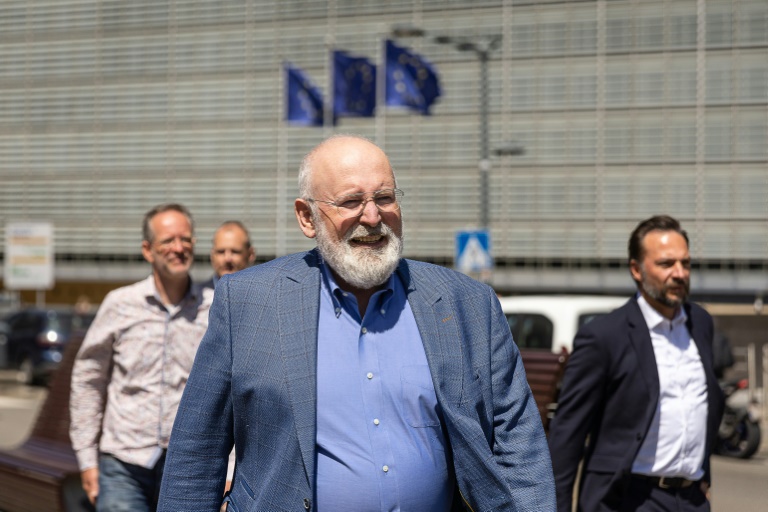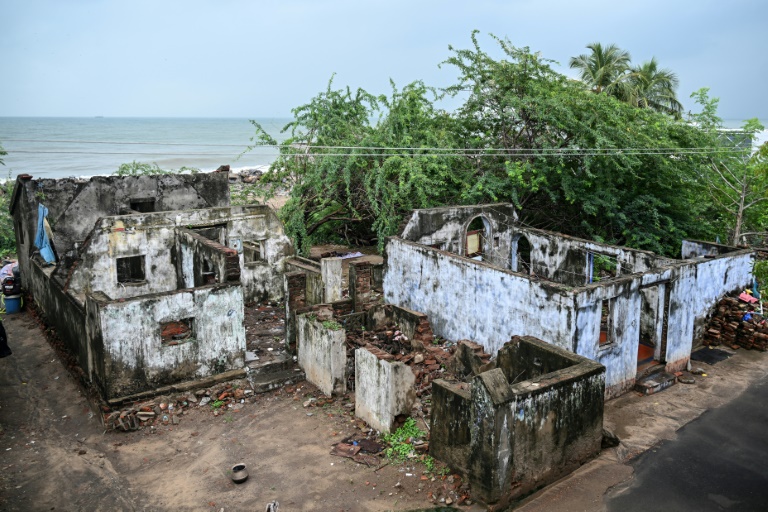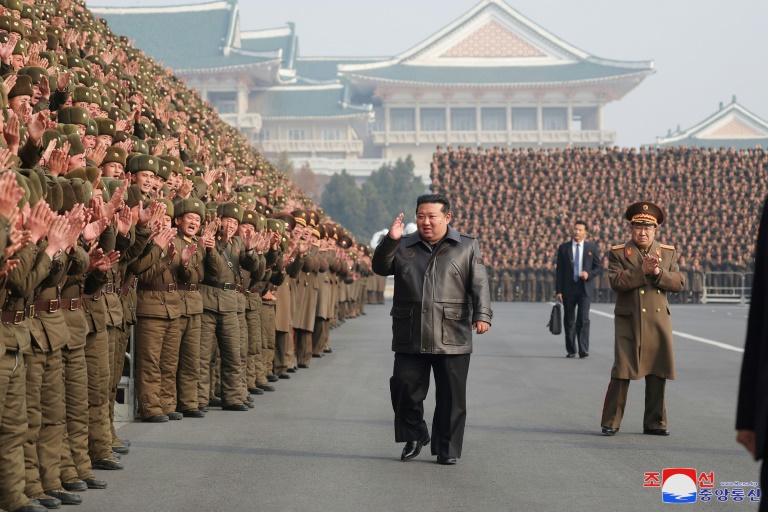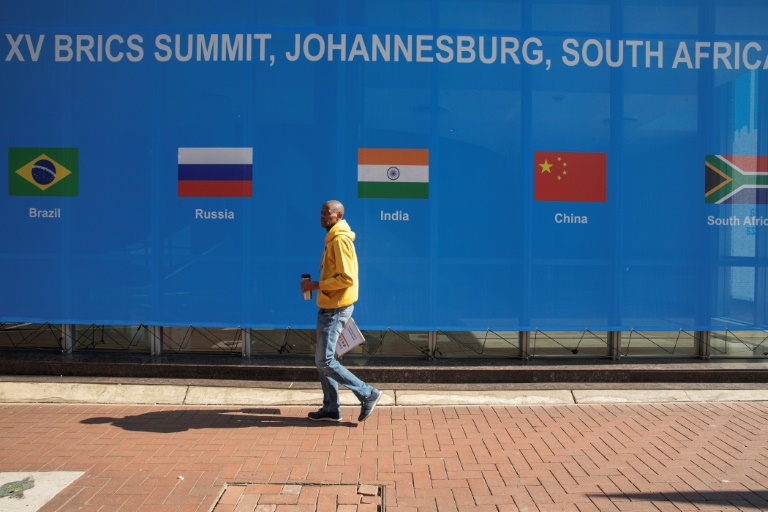AFP
A tenacious negotiator and master of multiple European languages, Dutch politician Frans Timmermans has become the bearded face and impassioned voice of the EU’s efforts to forge an ambitious Green Deal climate pact.
But now he is attempting to shake off his image as the quintessential Brussels operator and return to the bear pit of national politics, in a bid to become the Netherlands’s prime minister.
The 62-year-old’s term as EU executive vice president had been scheduled to end after next year’s European elections.
But the collapse of outgoing liberal premier Mark Rutte’s coalition triggered snap elections to be held on November 22, and Timmermans is expected to lead a joint green and social democrat list at the polls.
His selection as the centre-left candidate is expected to be confirmed on Tuesday — he is the sole candidate from the PvdA and GroenLinks parties — but the real electoral challenge is still to come.
Even if the joint list puts in a creditable showing in the parliamentary election, Timmermans will have to wield his Brussels-honed powers of back-room persuasion to build a stable coalition.
But his image as Brussels environmental supremo could hurt him at a time when Dutch politics has been shaken up by the rapid rise of the Farmer-Citizen Movement (BBB).
The party sprang out of rural opposition to the kinds of environmental protection policies championed by Timmermans at the EU level, and in less than four years it has become a force to be reckoned with.
Since 2019, the bicycling father of four has been the political and bureaucratic driving force behind the environmental policies backed by EU chief Ursula von der Leyen’s European Commission.
But the conservative and centre-right parties represented by von der Leyen’s EPP bloc, with one eye over their shoulders on more radical upstart rivals like the BBB, have been putting their foot on the brakes.
Some have demanded a slowdown in EU legislation to impose tighter nature protection laws on agriculture or combat climate change with ambitious net-zero targets for greenhouse emissions.
Timmermans has never blinked, fighting to get the Green Deal through, but he will leave Brussels with this work incomplete and return home to a country where such changes face rising scepticism.
An imposing former foreign minister with a white beard and a powerful voice — plus a remarkable facility with languages even in a city where most speak two or three — Timmermans arrived in Brussels in 2014.
The head of the commission at the time, Luxembourg conservative Jean-Claude Juncker, gave Timmermans, a grandson of miners, a senior role but limited his political room to manoeuvre, an early sign of frustrations to come.
In 2019, Timmermans made a bid for Brussels’ most powerful post, becoming the candidate for Commission president for the socialist and centre-left group in the European Parliament.
European member state capitals, however, brushed aside all the candidates of right and left backed by MEPs and instead sought out von der Leyen, Germany’s defence minister at the time, to take charge of the EU executive.
Timmermans was given an executive vice president role and the Green Deal brief as a consolation prize, and reports suggest that he has sometimes chafed under von der Leyen’s leadership.
The various measures brought under the Green Deal umbrella faced a tortuous legislative journey through the European Parliament, and needed all of Timmermans’s linguistic and oratorical talent to survive.
When in 2021 the proposed changes began to touch directly on voter concerns — including a reform of the carbon emissions trading market to apply it to domestic heating, and a ban on new internal combustion engine cars from 2035 — he faced growing resistance.
While populist and free-market opponents warned of social unrest similar to the protests triggered in France by restrictions on diesel vehicles, Timmermans expressed frustration that political calculations were trumping environmental science.
“Everyone is talking about the threat of the ‘yellow jackets’,” he said at the time, a reference to the anti-government protests that were roiling France. “At least take the bother of engaging correctly with our propositions.”
In front of the EU parliament, he turned to English playwright Shakespeare.
“The time is out of joint; O cursed spite, That ever I was born to set it right!” he said, citing Hamlet to cast himself as the protagonist in an unfolding tragedy.
Dropping the iambic pentameter to issue an urgent warning, he told MEPs: “If we fail to act now, and I mean immediately, then our children will never forgive us.”
The main planks of the EU climate program passed the European Parliament. Green groups hailed the passage of the bills, and Timmermans won some plaudits.
“With Timmermans’s move, the EU Commission loses its visionary mastermind of the Green Deal,” said German Green MEP Michael Bloss. “The Netherlands are lucky to have him back.”
But the right was not quite finished with him. After the climate legislation passed, the EPP turned its fire on pesticide controls and nature protection laws of the kind that had angered the BBB.
These were watered down substantially after conservatives made Timmermans the villain in a campaign accusing Brussels of wanting to, among other things, kick “Santa out of his house” to reforest Finland.
“It makes me really sad that some are trying to draw climate policy into the cultural wars, because then you create sort of a tribal opposition — and once you get into a tribal opposition, facts don’t matter anymore,” he said.

AFP
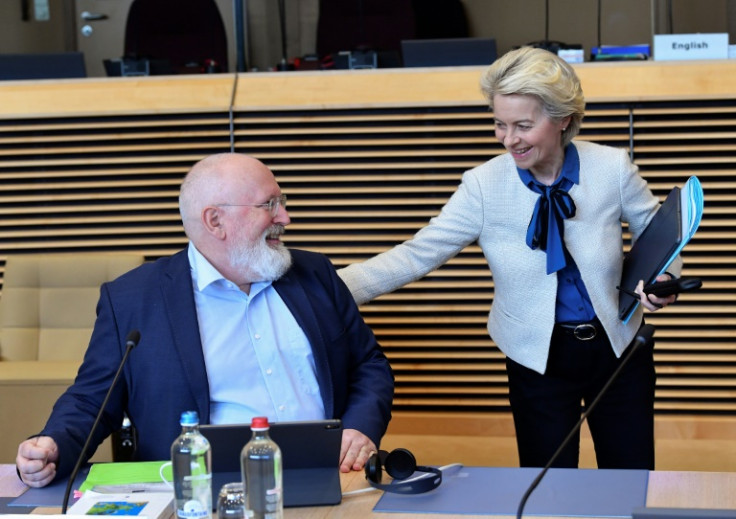
AFP

